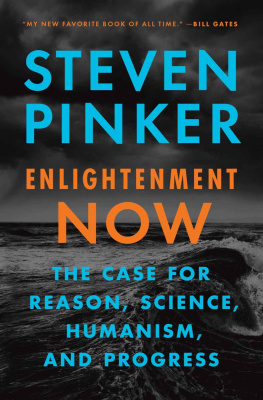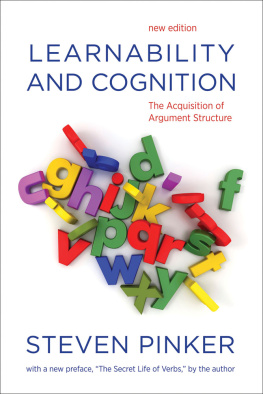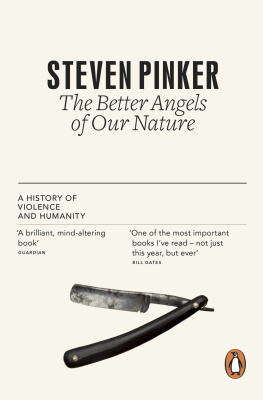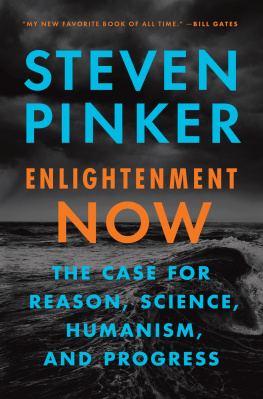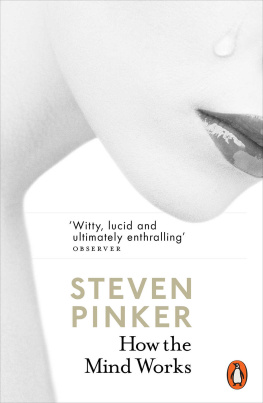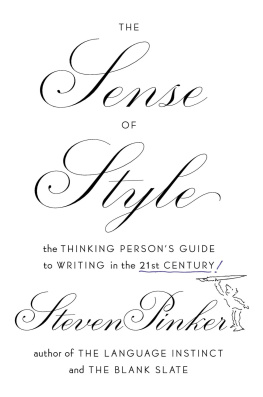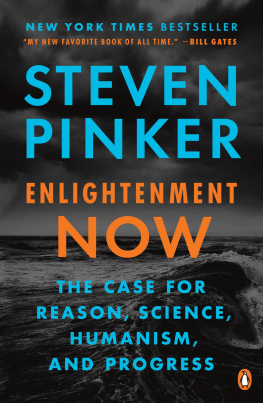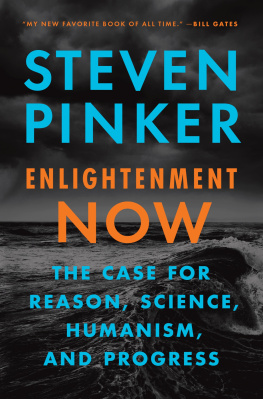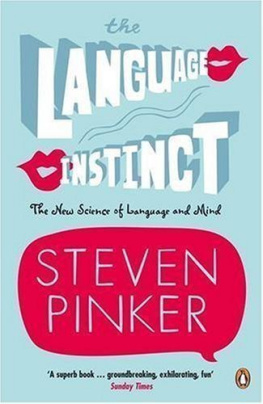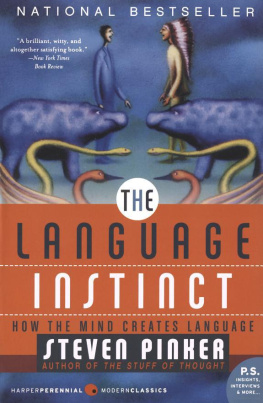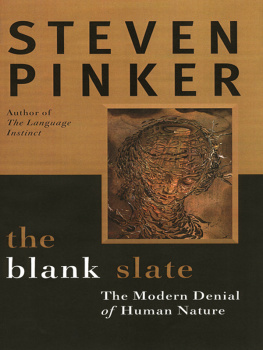Pinker - Review of Steven Pinkers Enlightenment Now: The Case for Reason, Science, Humanism, and Progress
Here you can read online Pinker - Review of Steven Pinkers Enlightenment Now: The Case for Reason, Science, Humanism, and Progress full text of the book (entire story) in english for free. Download pdf and epub, get meaning, cover and reviews about this ebook. year: 2018, publisher: Viking;Penguin Publishing Group, genre: Politics. Description of the work, (preface) as well as reviews are available. Best literature library LitArk.com created for fans of good reading and offers a wide selection of genres:
Romance novel
Science fiction
Adventure
Detective
Science
History
Home and family
Prose
Art
Politics
Computer
Non-fiction
Religion
Business
Children
Humor
Choose a favorite category and find really read worthwhile books. Enjoy immersion in the world of imagination, feel the emotions of the characters or learn something new for yourself, make an fascinating discovery.
Review of Steven Pinkers Enlightenment Now: The Case for Reason, Science, Humanism, and Progress: summary, description and annotation
We offer to read an annotation, description, summary or preface (depends on what the author of the book "Review of Steven Pinkers Enlightenment Now: The Case for Reason, Science, Humanism, and Progress" wrote himself). If you haven't found the necessary information about the book — write in the comments, we will try to find it.
Is the world really falling apart? Is the ideal of progress obsolete? In this elegant assessment of the human condition in the third millennium, cognitive scientist and public intellectual Steven Pinker urges us to step back from the gory headlines and prophecies of doom, which play to our psychological biases. Instead, follow the data: In seventy-five jaw-dropping graphs, Pinker shows that life, health, prosperity, safety, peace, knowledge, and happiness are on the rise, not just in the West, but worldwide. This progress is not the result of some cosmic force. It is a gift of the Enlightenment: the conviction that reason and science can enhance human flourishing.
Far from being a nave hope, the Enlightenment, we now know, has worked. But more than ever, it needs a vigorous defense. The Enlightenment project swims against currents of human naturetribalism, authoritarianism, demonization, magical thinkingwhich demagogues are all too willing to exploit. Many commentators, committed to political, religious, or romantic ideologies, fight a rearguard action against it. The result is a corrosive fatalism and a willingness to wreck the precious institutions of liberal democracy and global cooperation.
With intellectual depth and literary flair, Enlightenment Now makes the case for reason, science, and humanism: the ideals we need to confront our problems and continue our progress.
Pinker: author's other books
Who wrote Review of Steven Pinkers Enlightenment Now: The Case for Reason, Science, Humanism, and Progress? Find out the surname, the name of the author of the book and a list of all author's works by series.

